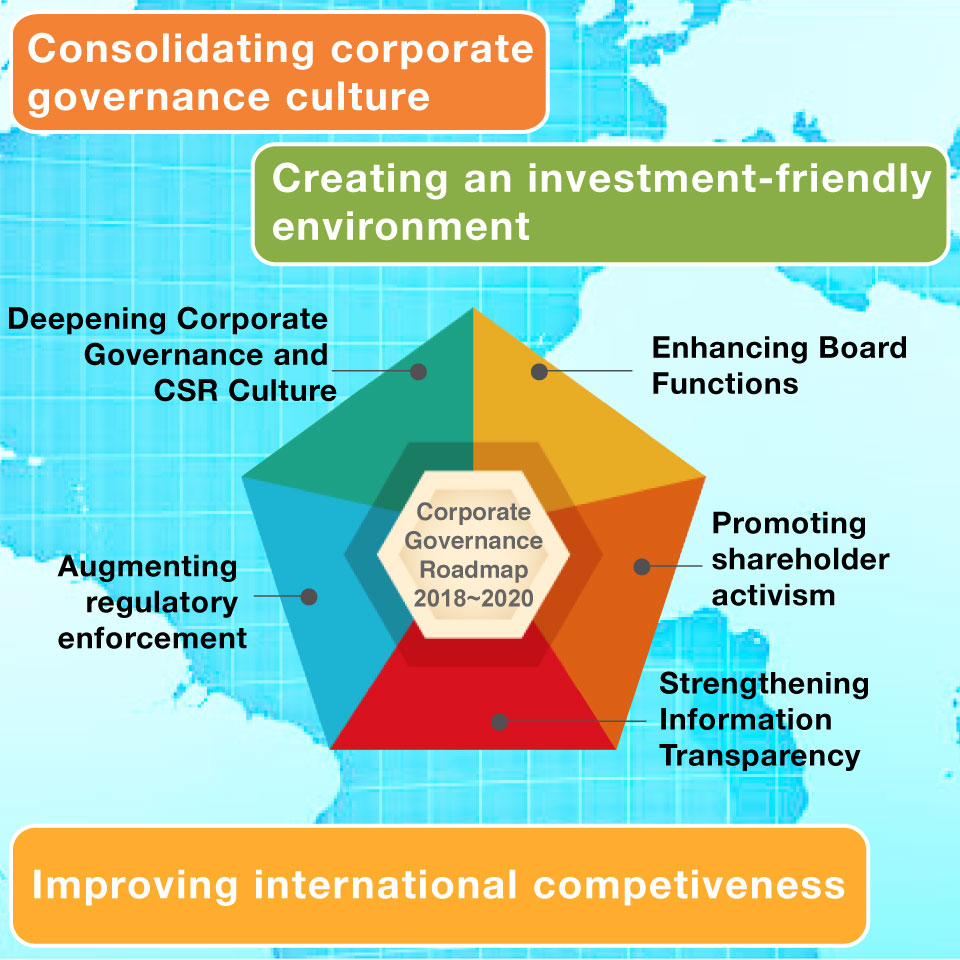Recent Corporate Governance NewsLatest News
Morris Chang Jokingly Discusses Succession: No One Does it Better Than me
Translate from Appledaily
What attributes does Morris Chang, chairman of the Taiwan Semiconductor Manufacturing Company (TSMC), think that a successor must possess? His answer, “The ability to maintain the company’s values for decades to come.” With a humorous tone, Chang participated in yesterday’s (May 27) “Business Ethics Leadership Forum for TWSE-Listed Companies.” He prompted applause and laughter from the audience, using words like “It’s highly unlikely that someone would be good enough to replace me!” and, “Even if you find a highly competent person with experience, no one could do it as well as I did!”
In the yesterday’s “Business Ethics Leadership Forum for TWSE-Listed Companies,” Chang and Edward H. Chow, the President of National Chengchi University NCCU, led a discourse. Chang stated that corporate governance and company management are different. Company management is narrow and has a clear purpose to maximize profits under compliance with laws and ethical principles. Corporate governance, meanwhile, is the responsibility of the board of directors. A recent trend has seen boards of directors gradually separated from management hierarchy.
He believes that the goal of governance is to balance the interests of all stakeholders. The biggest stakeholder would be the shareholders, followed by the employees and then society. As for the zero-sum game played between customers and companies, there are in reality few companies that can create true common interest with their customers. Corporate governance is the responsibility of the board of directors and it should be down to them to balance the interests of the stakeholders listed above. What are the important responsibilities of the board? Chang states that the board is the defender of values. At TSMC, they emphasize “honesty, integrity, commitment, and innovation.” The company strategy cannot be set by the board. It should be set by the managerial department with the board’s supervision. The board should be led by a good chairman.
Chow proceeded to ask Chang as to how one would go about selecting and promoting senior executives. Chang stated that TSMC has their own promotion system. TSMC needs to first determine if the employee would perform better in their new position. Chang states that, “Future potential is more important than current outstanding performance.” In TSMC, there are four layers underneath Chang: the general manager, vice president, director, and deputy director, the total number of which is 120 people. Before they can be promoted, each one of them must have a face-to-face meeting with Chang himself.
What abilities are required of the next successor of TSMC? Jokingly, Chang stated that “Each founder has the same thoughts on the matter as I do: It is highly unlikely that someone would be good enough to replace me.” This prompted applause and laughter from the audience. He states that it would not be hard to find someone with judgement and insight from within TSMC, but these attributes are not as important as the maintenance of values and corporate governance.
Humorously, Chang concluded his speech by leaving us with a classic quote, “Even if you find a highly competent person with experience, no one could do it as well as I did!”


